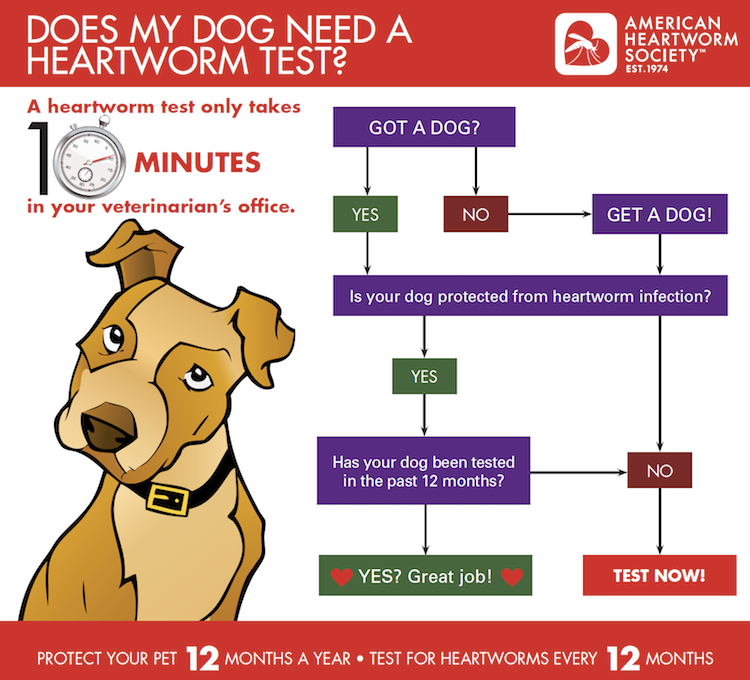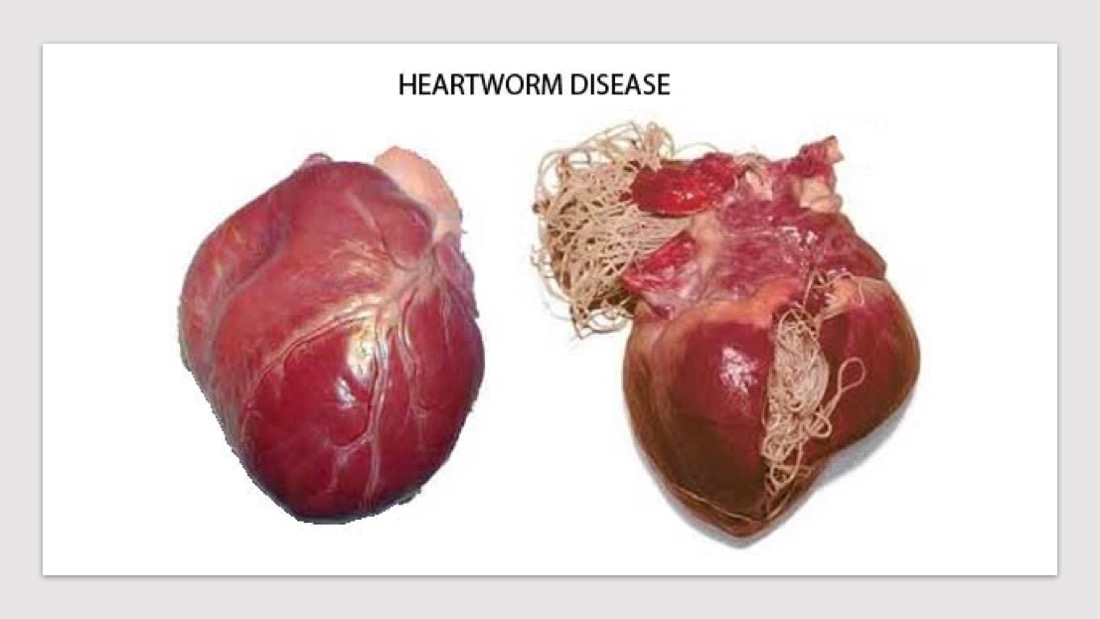How Much Do You Know About Heartworms?

Written by Dr. Janet McKim, DVM, VCA Charleston
We have been aware heartworm has been infesting and killing our dogs for over a century. What has changed and how should we respond?
The first thing that has changed is our understanding of where this parasite lives and how it creates disease. Heartworms don’t actually live in the heart. Their preferred resting place is in the main pulmonary artery, the large blood vessel carrying blood from the heart to the lungs. These large (up to 14 inches long) worms float in the bloodstream, moving with each beat of the heart, rubbing against the delicate lining of the artery causing a deep inflammation of this very important vessel. Within months the pristine smooth endothelium resembles a rutted dirt road. Blood traversing this ugly roadway and maneuvering around mounds of worms is harder to push. The heart works harder resulting in heart enlargement and an increasing risk of heart failure.
Adult heartworms live about 2-5 years. You’d think things get better when they die. Nope. The dead worms are flushed deep into the lungs, causing portions of the lung to scar into useless tissue. Even in death heartworms are destructive.
This new knowledge of heartworms has changed our recommendations for treating heartworm and our thoughts on the use of preventives.
Throw out any idea that a “low grade infection”, or low worm burden infers less damage. A study showed the placement as few as 4 adult worms (dogs can have dozens of worms in a natural infection) caused arteritis within a few months.
Reject the idea that “slow kill”, the use of monthly preventives in lieu of the recommended 3 step protocol to kill adult heartworms is a viable option for treatment of heartworm infection. Administering preventives to heartworm positive dogs will prevent the development of additional adult worms, but allows the existing adult heartworms 2-5 years to continue to slide back and forth with every beat of the heart causing irreparable damage. Slow kill has caused the emergence of heartworm strains resistant to all our preventives…and there are no new preventives on the horizon. Slow kill not only puts the health of the dog on this protocol at risk, it is risking the collective health of ALL OUR DOGS.
The second thing that has changed is we have more mosquitoes then ever! Climate change is not just creating more “sunny day” flooding in our fair city; it is creating new habitats for mosquitoes. Doing the math of more mosquitoes, more heartworm positive dogs and resistance to preventives, the result is …scary for our dogs and the people who love them.
What to do? Listen to the experts! While every veterinarian knows about heartworm it is not their life focus, except for the veterinarians and parasitologists of the American Heartworm Society.
These dedicated professionals are committed to understanding and defeating heartworm. They issue a comprehensive report on the status of heartworm and guidelines for prevention and treatment every 2 years. Their website (www.heartwormsociety.org) has an owner section as well as a section for the veterinary professional; you are welcome to read any and all sections. Don’t fall for urban myths or outdated thinking; be your dog’s advocate by reading the most current information from the experts who know more about heartworm than anyone else on the planet!




